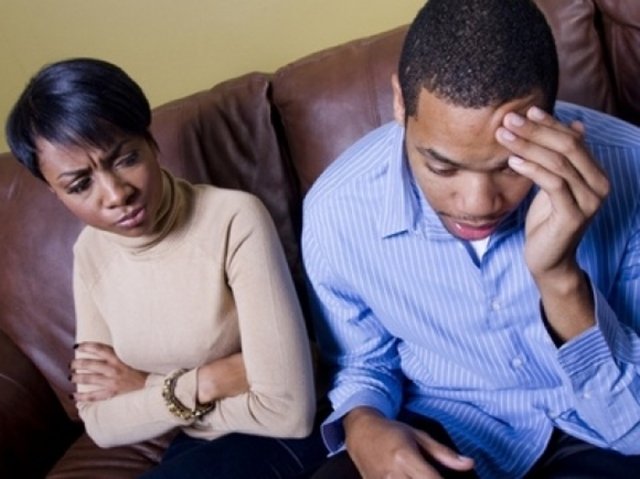You deserve to feel safe in your relationship. Emotional, verbal, or physical abuse is not your fault. Here’s how to recognize the signs of an unhealthy relationship and get help.
How do I know if my relationship is unhealthy?
Sure, nobody’s relationship is perfect, and people make mistakes. But if you feel like you’re being treated badly, you probably are. Listen to your gut. Healthy relationships make you feel good about yourself — unhealthy relationships don’t.
Lying, cheating, jealousy, and disrespect are signs of an unhealthy relationship. So is trying to control a partner. That includes:
keeping track of where they are and who they hang out with
checking their phone or e-mail without permission
READ ALSO: 6 shady signs the guy you're falling for is low-key playing you
keeping them away from friends or family
telling them they can’t do certain activities
preventing them from having money
What are the signs of an abusive relationship?
Anyone can find themselves in an abusive relationship, no matter their age, gender, or sexual orientation. Movies and TV shows that depict abuse might give you the impression that an abusive relationship is only when someone is getting hit or physically hurt. But there are different types of abuse that can affect your body, your emotions, and your self-esteem.
Physical abuse means hitting, kicking, pushing, or hurting someone in any way.
Sexual abuse is forcing your partner to do anything sexual, from kissing to having sex. When you don’t consent to sexual activity, it’s considered sexual assault or rape, whether you’re in a relationship or not.
Verbal abuse is name-calling, put-downs, and using words to hurt someone.
Emotional abuse is when your partner tries to make you feel bad about yourself. That can mean hurting your feelings on purpose, jealousy, blaming you for the abuse, cheating, or continually criticizing you. Emotional abuse affects your self-esteem.
Reproductive control is pressuring your partner to get pregnant, end a pregnancy, lying about birth control, or other controlling decisions about pregnancy and parenting.
Threats and intimidation use the threat of violence or abuse to control a partner. Threatening children, suicide, or physical violence are all ways to control your behavior.
Isolation is controlling who you see, what you do, and limiting your access to friends, family, and other forms of emotional and financial support.
Each relationship is different, and the signs of an abusive relationship can vary. But all of these behaviors are ways that one person tries to maintain all of the power in a relationship and control their partner.
Sometimes abusive behaviors begin slowly and get worse as time goes on. If you’ve been feeling devalued, afraid, or controlled, get help. Everyone deserves to be in a relationship where both people feel safe and are respected, trusted, and loved.
How do I get out of an abusive relationship?
If you’re in an abusive relationship, know that you’re not alone and you deserve better. If your partner hurts you physically, emotionally, or sexually, remember: nothing you said or did justifies their behavior. Everyone gets mad sometimes, but talking things through is the way to deal with problems — not hurting you or putting you down.
Abuse doesn’t happen because you did something wrong, or weren’t good enough to prevent it from happening. Domestic abuse happens because someone made a choice to manipulate and control you to make themselves more powerful. Remember, you deserve healthy, happy relationships. Abuse of any kind is never OK.
When you break up with an abusive partner, it’s important to have a safety plan if you’re afraid they might hurt you, your children, or other people you love. Call the National Domestic Violence Hotline at 1-800-799-SAFE (7233) to get support and advice and check out their safety plan. If you’re in high school or college, you may find the safety plan at Love Is Respect helpful. If you feel like you’re in immediate danger, get away from your partner and call 911.
How can I help someone who’s in an abusive relationship?
Leaving an unhealthy relationship can be really hard and can take a long time. In fact, it takes an average of 7 tries before someone leaves an abusive partner for good. So don’t give up on your loved one if they’re not ready to leave or they keep going back. The best thing you can do is listen, be supportive, and when you get the chance, talk about how much better life could be.
Here are more tips:
Be supportive and listen patiently. Having you there and getting support can make a big difference.
Help your loved one recognize that abuse is not “normal†and they don’t deserve it.
If your loved one is open to leaving the relationship, develop a safety plan together and identify resources that can help.
Source: Plannedparenthood.org





